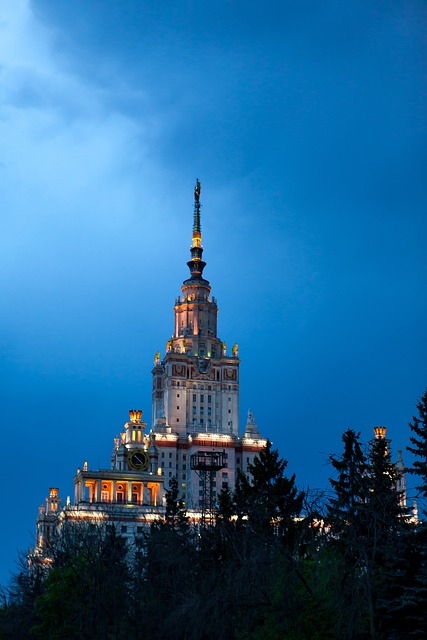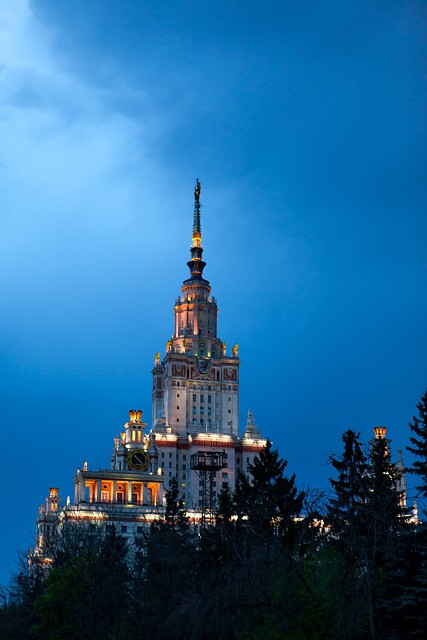Italy, renowned for its rich cultural heritage and historical significance, is also home to some of Europe’s most prestigious universities. These institutions are celebrated for their academic excellence, innovative research, and contributions to various fields of study. Here’s an in-depth look at the top five universities in Italy, highlighting their academic strengths, research achievements, and overall impact.
1. University of Bologna
Academic Excellence and Programs
The University of Bologna, founded in 1088, is not only the oldest university in Italy but also one of the oldest in the world. Located in Bologna, Emilia-Romagna, it has a long-standing tradition of academic excellence and a rich history that has shaped its global reputation. The university offers a wide range of programs across various disciplines, including humanities, sciences, engineering, social sciences, and medicine.
The University of Bologna is known for its comprehensive academic structure, which includes numerous departments and research centers. Undergraduate programs are designed to provide students with a solid foundation in their chosen field, while graduate programs offer opportunities for advanced study and research. The university’s Bologna Process, which aligns with the European higher education framework, ensures a high standard of education and promotes student mobility across Europe.
Research and Innovation
The University of Bologna is a leader in research and innovation, with a strong emphasis on interdisciplinary collaboration and cutting-edge research. The university’s research output is substantial, with contributions to various fields such as medical science, engineering, and the humanities. Research centers and institutes at the University of Bologna are involved in significant projects that address both local and global challenges.
The university’s commitment to research excellence is supported by substantial funding from national and international sources. The university’s Research Office facilitates research activities, fosters collaborations with industry, and supports the commercialization of research outcomes.
Campus and Facilities
The University of Bologna’s campus is spread across multiple locations in Bologna, each offering distinct facilities and resources. The main campus includes historic buildings and modern facilities, such as state-of-the-art laboratories, libraries, and student accommodation. The university’s libraries, including the University Library of Bologna, house extensive collections of books, manuscripts, and digital resources.
The campus environment is vibrant and dynamic, with a range of student services, recreational facilities, and cultural activities. The university’s commitment to providing a supportive and engaging campus experience is reflected in its extensive range of services and facilities.
Community and Global Impact
The University of Bologna has a diverse and active student body, with students from various backgrounds and countries. The university fosters a strong sense of community and encourages student involvement in extracurricular activities, leadership roles, and community service.
The global impact of the University of Bologna is significant, with alumni and faculty making important contributions in various fields, including academia, business, and public service. The university’s international collaborations and partnerships enhance its global reach and influence.
2. University of Milan (Università degli Studi di Milano)
Academic Excellence and Programs
The University of Milan, founded in 1924, is one of Italy’s leading universities, located in Milan, Lombardy. The university offers a broad range of programs across various disciplines, including humanities, sciences, law, economics, and social sciences. Known for its academic rigor and research excellence, the University of Milan provides students with a comprehensive education that prepares them for success in their chosen fields.
The university’s academic structure includes numerous departments and research centers, each specializing in different areas of study. Undergraduate programs are designed to provide students with a strong foundation in their field, while graduate programs offer advanced study and research opportunities. The university’s commitment to interdisciplinary study and research ensures that students receive a well-rounded education.
Research and Innovation
The University of Milan is renowned for its research output and innovation, with a strong focus on addressing global challenges and advancing knowledge. The university’s research centers and institutes are involved in groundbreaking research across various fields, including medical sciences, biotechnology, and social sciences.
The university’s research efforts are supported by substantial funding from national and international sources. The university’s Research and Innovation Office plays a key role in facilitating research activities, fostering collaborations with industry, and supporting the commercialization of research outcomes.
Campus and Facilities
The University of Milan’s campus is located in the heart of Milan and features a mix of historic and modern buildings. The campus includes state-of-the-art research facilities, libraries, and student accommodation. The university’s libraries, such as the Biblioteca Centrale, hold extensive collections of books, journals, and digital resources.
The campus environment is dynamic and supportive, with various student services, recreational facilities, and cultural activities. The university’s commitment to providing a vibrant and engaging campus experience is reflected in its extensive range of services and facilities.
Community and Global Impact
The University of Milan has a diverse student body and a strong sense of community. The university encourages student involvement in extracurricular activities, leadership roles, and community service. The university’s commitment to public service and social impact is reflected in its various programs and initiatives.
The global impact of the University of Milan is significant, with alumni and faculty making important contributions in various fields, including academia, business, and public service. The university’s international collaborations and partnerships enhance its global influence and reach.

3. University of Rome “La Sapienza” (Sapienza University of Rome)
Academic Excellence and Programs
Sapienza University of Rome, founded in 1303, is one of Italy’s largest and most prestigious universities. Located in Rome, Lazio, the university offers a wide range of programs across various disciplines, including humanities, sciences, engineering, law, and social sciences. Known for its academic rigor and research excellence, Sapienza provides students with a comprehensive education that prepares them for success in their chosen fields.
The university’s academic structure includes numerous faculties and departments, each specializing in different areas of study. Undergraduate programs are designed to provide students with a solid foundation in their field, while graduate programs offer advanced study and research opportunities. The university’s emphasis on research and interdisciplinary study ensures that students receive a well-rounded education.
Research and Innovation
Sapienza University of Rome is a leader in research and innovation, with a strong focus on addressing global challenges and advancing knowledge. The university’s research centers and institutes are involved in significant projects across various fields, including medical sciences, engineering, and social sciences.
The university’s research efforts are supported by substantial funding from national and international sources. The university’s Research Office facilitates research activities, fosters collaborations with industry, and supports the commercialization of research outcomes.
Campus and Facilities
The Sapienza University of Rome’s campus is located in Rome and features a mix of historic and modern buildings. The campus includes state-of-the-art research facilities, libraries, and student accommodation. The university’s libraries, such as the Biblioteca di Scienze, hold extensive collections of books, journals, and digital resources.
The campus environment is vibrant and dynamic, with a range of student services, recreational facilities, and cultural activities. The university’s commitment to providing a supportive and engaging campus experience is reflected in its extensive range of services and facilities.
Community and Global Impact
Sapienza University of Rome has a diverse and active student body, with students from various backgrounds and countries. The university fosters a strong sense of community and encourages student involvement in extracurricular activities, leadership roles, and community service.
The global impact of Sapienza University of Rome is significant, with alumni and faculty making important contributions in various fields, including academia, business, and public service. The university’s international collaborations and partnerships enhance its global reach and influence.
4. University of Padua (Università degli Studi di Padova)
Academic Excellence and Programs
The University of Padua, founded in 1222, is one of Italy’s oldest and most prestigious universities. Located in Padua, Veneto, the university offers a wide range of programs across various disciplines, including humanities, sciences, engineering, law, and medicine. Known for its academic rigor and research excellence, the University of Padua provides students with a comprehensive education that prepares them for success in their chosen fields.
The university’s academic structure includes numerous departments and research centers, each specializing in different areas of study. Undergraduate programs are designed to provide students with a strong foundation in their field, while graduate programs offer advanced study and research opportunities. The university’s emphasis on interdisciplinary study and research ensures that students receive a well-rounded education.
Research and Innovation
The University of Padua is a leader in research and innovation, with a strong focus on addressing global challenges and advancing knowledge. The university’s research centers and institutes are involved in significant projects across various fields, including medical sciences, environmental studies, and engineering.
The university’s research efforts are supported by substantial funding from national and international sources. The university’s Research Office plays a key role in facilitating research activities, fostering collaborations with industry, and supporting the commercialization of research outcomes.
Campus and Facilities
The University of Padua’s campus is located in Padua and features a mix of historic and modern buildings. The campus includes state-of-the-art research facilities, libraries, and student accommodation. The university’s libraries, such as the Biblioteca Universitaria di Padova, hold extensive collections of books, journals, and digital resources.
The campus environment is dynamic and supportive, with various student services, recreational facilities, and cultural activities. The university’s commitment to providing a vibrant and engaging campus experience is reflected in its extensive range of services and facilities.
Community and Global Impact
The University of Padua has a diverse student body and a strong sense of community. The university encourages student involvement in extracurricular activities, leadership roles, and community service. The university’s commitment to public service and social impact is reflected in its various programs and initiatives.
The global impact of the University of Padua is significant, with alumni and faculty making important contributions in various fields, including academia, business, and public service. The university’s international collaborations and partnerships enhance its global influence and reach
5. University of Turin (Università degli Studi di Torino)
Academic Excellence and Programs
The University of Turin (Università degli Studi di Torino), founded in 1404, is one of Italy’s oldest and most esteemed universities. Located in Turin, Piedmont, this institution has a rich history of academic excellence and continues to be a leading center of higher education and research. The university offers a broad array of programs across various disciplines, including humanities, social sciences, natural sciences, engineering, medicine, and law.
The University of Turin’s academic structure includes a diverse range of departments and faculties, each specializing in distinct fields of study. Undergraduate programs at the university are designed to provide students with a comprehensive foundation in their chosen disciplines, while graduate programs offer advanced study and research opportunities. The university’s curriculum emphasizes both theoretical knowledge and practical skills, preparing students for a wide range of professional careers.
Research and Innovation
The University of Turin is a prominent player in research and innovation, with a strong focus on addressing contemporary challenges and advancing scientific knowledge. The university’s research output is substantial, covering various fields such as biomedical sciences, engineering, environmental studies, and social sciences. The university’s research centers and institutes are involved in cutting-edge projects and collaborations with national and international partners.
The university’s commitment to research excellence is supported by significant funding from various sources, including government grants, industry partnerships, and European Union research programs. The University of Turin’s Research Office plays a crucial role in facilitating research activities, fostering interdisciplinary collaborations, and supporting the commercialization of research findings.
The university’s research initiatives often focus on solving real-world problems and contributing to societal development. For example, research in biomedical sciences aims to advance medical treatments and healthcare solutions, while environmental studies explore sustainable practices and address climate change issues.
Campus and Facilities
The University of Turin’s campus is spread across multiple locations in Turin, each offering unique facilities and resources. The main campus includes a mix of historic and modern buildings, providing a conducive environment for academic and research activities. The university is equipped with state-of-the-art laboratories, libraries, and student accommodation.
The university’s libraries, such as the Biblioteca Universitaria di Torino, offer extensive collections of books, journals, and digital resources. These libraries serve as vital academic resources, supporting students and researchers in their studies and investigations.
The campus environment at the University of Turin is dynamic and supportive, with a range of student services, recreational facilities, and cultural activities. The university is dedicated to providing a vibrant campus experience, fostering a sense of community among students, and enhancing their overall university life.
Community and Global Impact
The University of Turin has a diverse and active student body, with students coming from various regions of Italy and around the world. The university promotes a strong sense of community and encourages students to participate in extracurricular activities, leadership roles, and community service.
The university’s global impact is notable, with alumni and faculty making significant contributions in various fields, including academia, industry, and public service. The University of Turin’s international collaborations and partnerships enhance its global reach and influence, fostering cross-cultural exchanges and collaborative research efforts.
The university’s commitment to societal impact is reflected in its various outreach programs and initiatives. These programs aim to address pressing social issues, support local communities, and contribute to global development. For instance, the university engages in initiatives related to education, social inclusion, and environmental sustainability.


